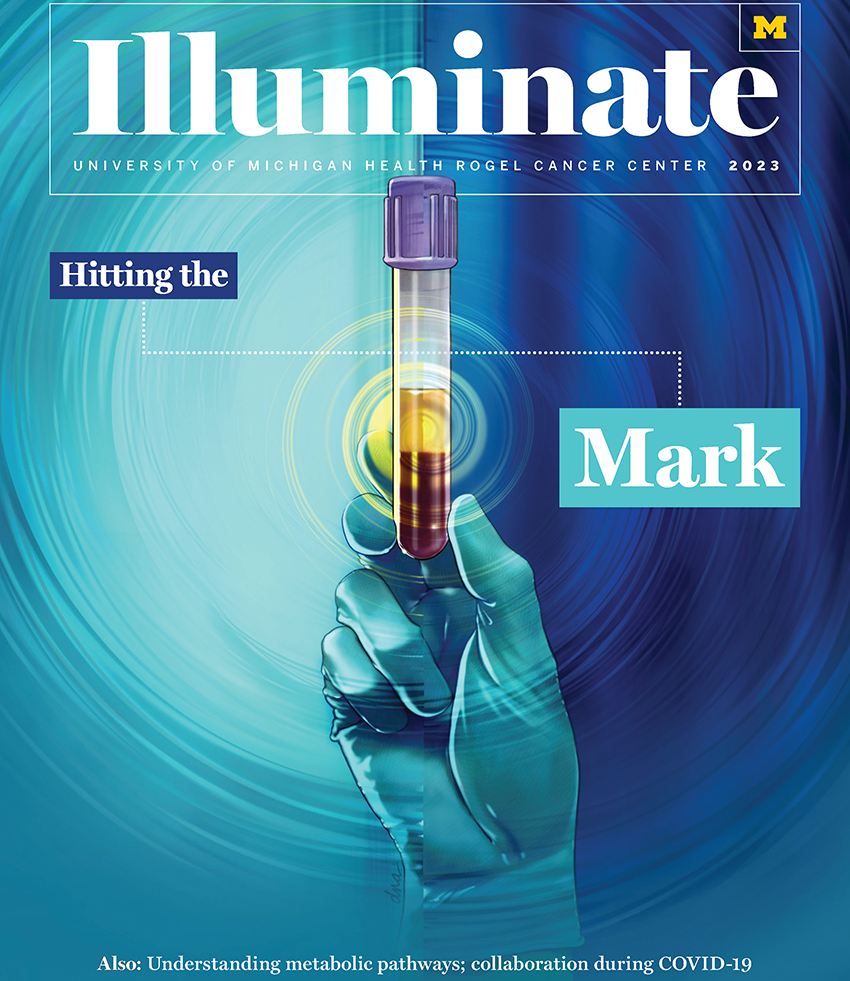Illuminate 2023

Advances in the lab like improved measurement of metabolism in tumors using PET scans, mass spectrometry and stable isotope tracing, the development of new and better drugs that can block metabolic pathways in cancer and a deeper understanding of the relationship between metabolism and the immune system all point to real hope that the time is now to target metabolism to improve cancer therapy, especially in those forms of cancer that don’t respond well to current treatments.
Circulating biomarkers, a new frontier in cancer care, bring both hope and unease to the clinic. Rogel researchers are unraveling their nuances, advancing enabling technologies, advocating for patients and figuring out how to ethically integrate this technology into clinical care.
When the pandemic hit, Rogel researchers, clinicians and staff needed to rethink how they did their work. In doing so, they discovered new ways to fulfill the cancer center’s mission despite unprecedented uncertainty.
Celeste Leigh Pearce, Ph.D., M.P.H. wants to build more than a cohort of study participants. She wants to create a movement. It’s a movement to understand how exposures to toxic metals, industrial pollution and “forever chemicals” called PFAS are impacting the health and cancer risk of residents across Michigan.
Supporting and mentoring the next generation of researchers is an important mission for the Rogel Cancer Center. We profile three outstanding members of our next generation: Drs. Lauren Ghazal, Angel Qin and Donnele Daley
